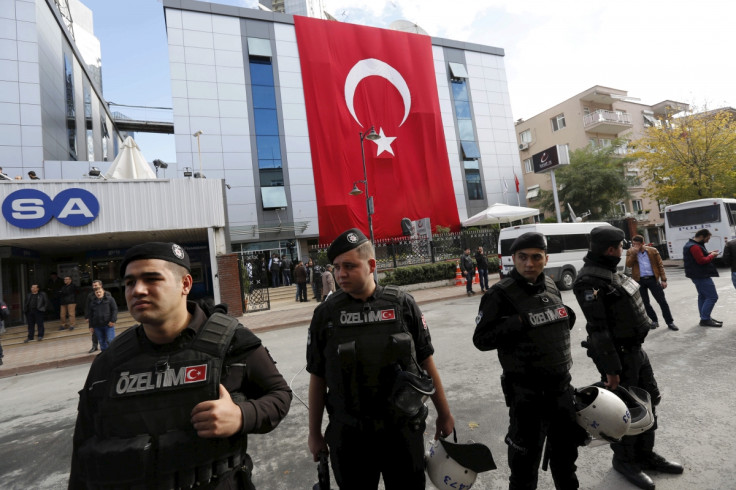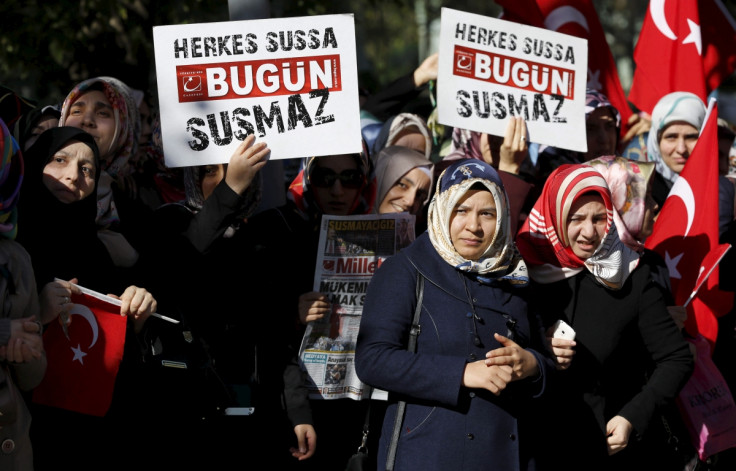Turkey: Journalists condemn 'unprecedented' crackdown on media ahead of elections

Turkey President Recep Tayyip Erdogan has been accused of targeting pro-opposition media in a bid to stifle criticism of his government ahead of this weekend's parliamentary polls. Turkish police on 28 October stormed the Istanbul headquarters of the Koza-Ipek media group that has links to US-based Islamic cleric Fethullah Gulen, a rival of Erdogan.
Dramatic footage of the incident appears to show riot police forcing their way through the metal gates of the compound using chainsaws, before forcing the Bugun and Kanalturk television stations off the air. An Ankara court had ordered the takeover of Koza-Ipek's 23 companies on 26 October after a court-appointed panel said it found financial irregularities.
A video believed to have been shot inside the offices of the Bugun newspaper shows a court-appointed trustee threatening, abusing and firing staff on the spot. It came after a leaked European Commission report, seen by Reuters, warned that Erdogan's government was becoming more authoritarian and that it was exerting undue political pressure on the judiciary.
'Unprecedented crackdown'
Tarik Toros, editor-in-chief of Bugun, called the recent action the "biggest crackdown on press in Turkish history".
Turkey goes to the polls on 1 November, its second parliamentary elections in five months. The previous polls proved inconclusive, with Erdogan's Justice and Development Party (AKP) falling 18 seats short of a majority.
"One-party rule would be a disaster. The atrocities against those who do not think like [Erdogan] would go on and Turkey would enter a darker period," Toros told the Guardian newspaper.
Ahmet Hakan, a columnist for the secular-leaning Hurriyet daily, was assaulted earlier this month by AKP supporters who accused him of backing the pro-Kurdish People's Democratic Party (HDP) led by Selahattin Demirtas.
"This is really unprecedented in Turkish history," he told the Guardian. "I'm not against the government - I'm just a journalist who criticises the government. Despite this I'm still subject to physical assault, so it's normal that journalists who define themselves as oppositional to the government would feel anxious.
"For the 13 years of this government this is perhaps the most dire time for journalists and when journalists feel the most unsafe."

© Copyright IBTimes 2024. All rights reserved.






